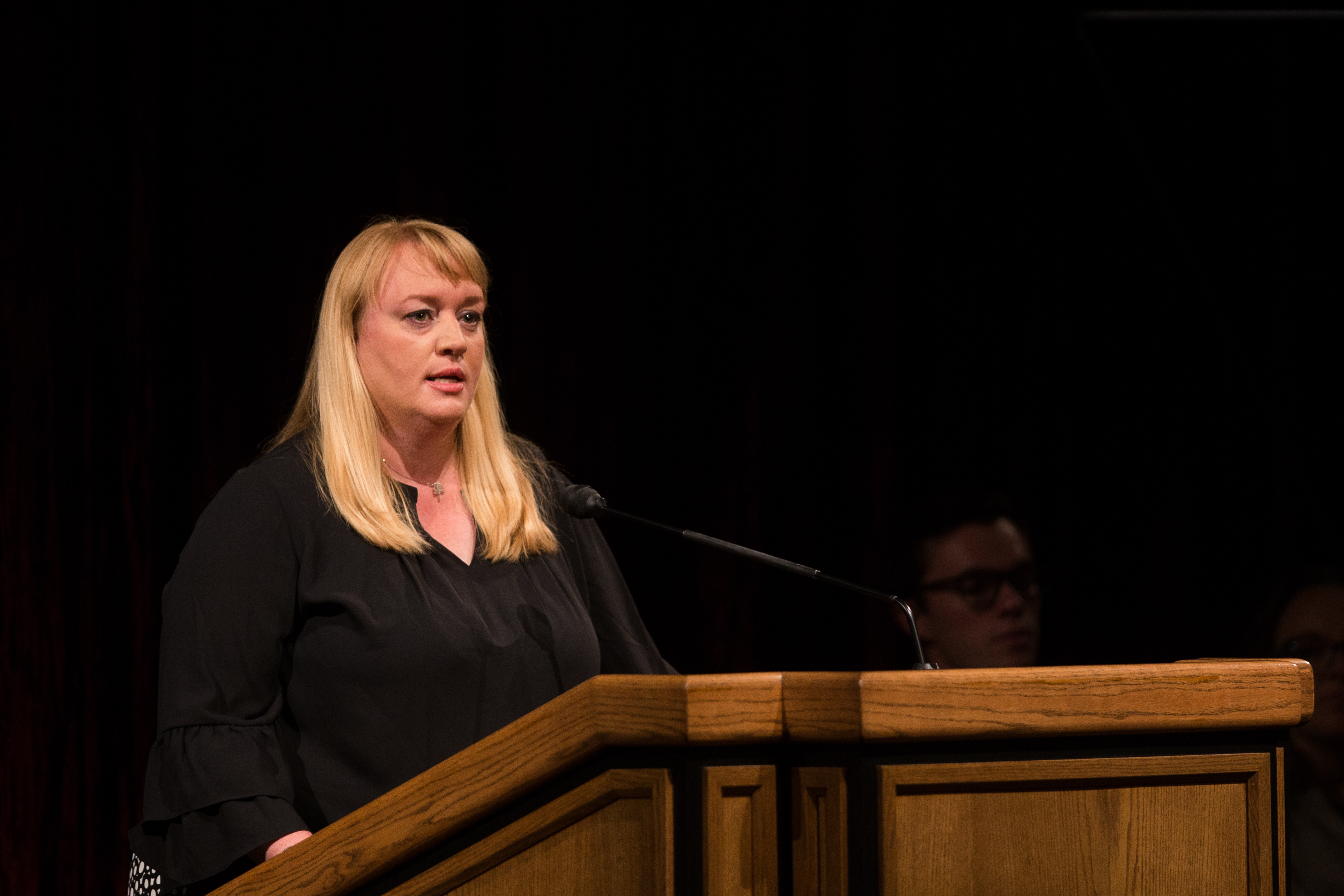
BYU associate professor of history Amy Harris spoke of the need for society to develop a genealogical consciousness during her July 18 forum.
Harris opened with a story about her childhood cats. She discussed how she began to recognize and form bonds with her pets. Harris said she asked her mother whether or not the cats would remember her in heaven.
“She assured me they would,” Harris said. “That cat. . . would remember me and I it. Forever.”
Harris said this simple statement later helped her understand that her family members who had passed on would love and know her.
“Knowing that death would not forever prevent me from knowing those people was deeply comforting and grounding,” Harris said.
Harris, whose research focuses on 18th century England, then gave several examples of how relationships improve life and continue to influence society today.
She discussed how the Yorkshire-born William Dade formed strong relationships with his siblings. Harris said during Dade’s life, people depended on their siblings for survival, especially when parents passed away early.
Dade felt motivated to improve local parish registers, which would allow eighteenth-century Englanders to leave better life records, thus allowing their descendants to learn about the past.
“This scheme, if properly put in execution, will afford much clearer intelligence to the researches of posterity than the imperfect method hitherto generally pursued,” Dade wrote, regarding keeping better records in parishes.
Harris said Dade stands as an example of humanity’s unique interest in connections from the past and future.
“The ability to plan for the future, to think about how today’s actions will shape tomorrow, is unique to humans,” Harris said.
Harris then said the ability to learn from the past has allowed humans to regularly interact and serve strangers with the intention of improving each others’ lives.
“Building lasting relationships and connections with other people is the only way to live happy and meaningful lives,” Harris said. “We are built to cooperate with and belong to not just our kin, but all humanity.”
Harris then discussed the life and work of Susa Young Gates, an early Latter-day Saint. According to Harris, Gates felt a need to develop genealogical systems within the LDS Church, with the intention of benefitting future Mormons.
Harris urged for BYU students to develop a love of genealogy in order to improve society and worldwide relationships.
“If Elijah was meant to return in order to save the world. . . then there is more for us to do with the manifestation of the Spirit that bears his name,” Harris said.




